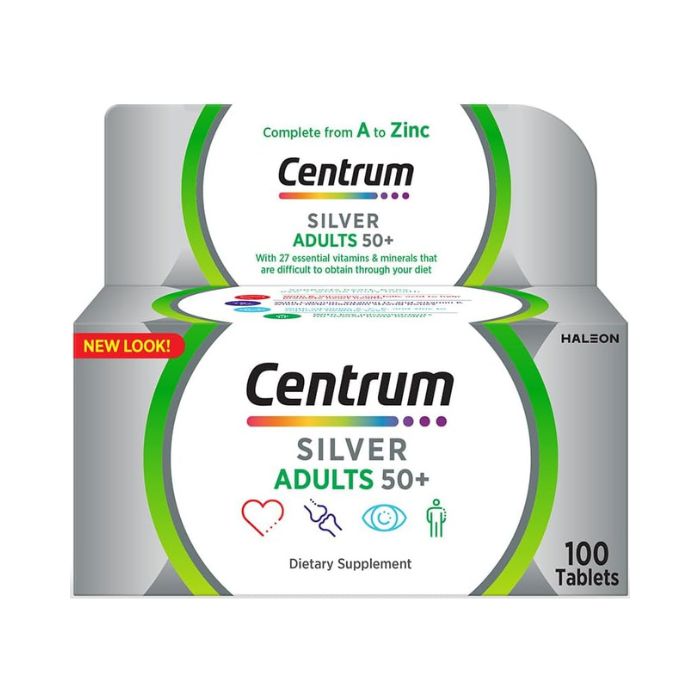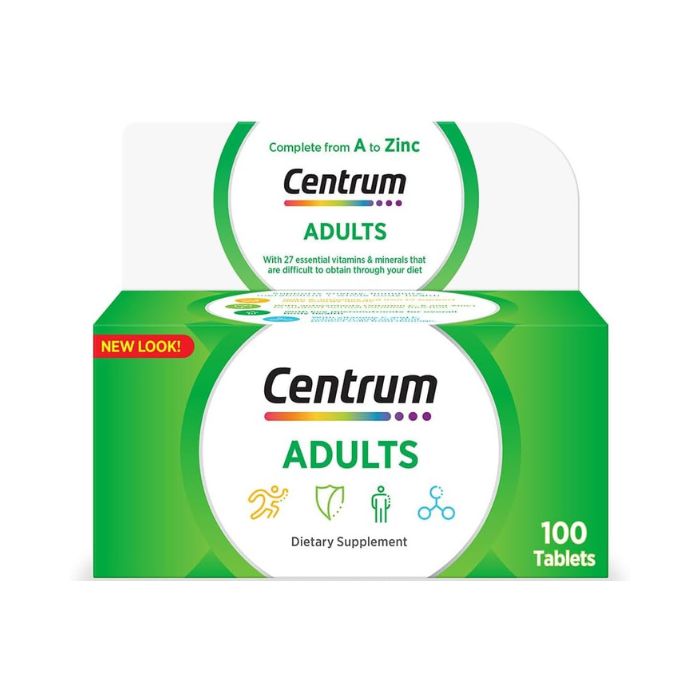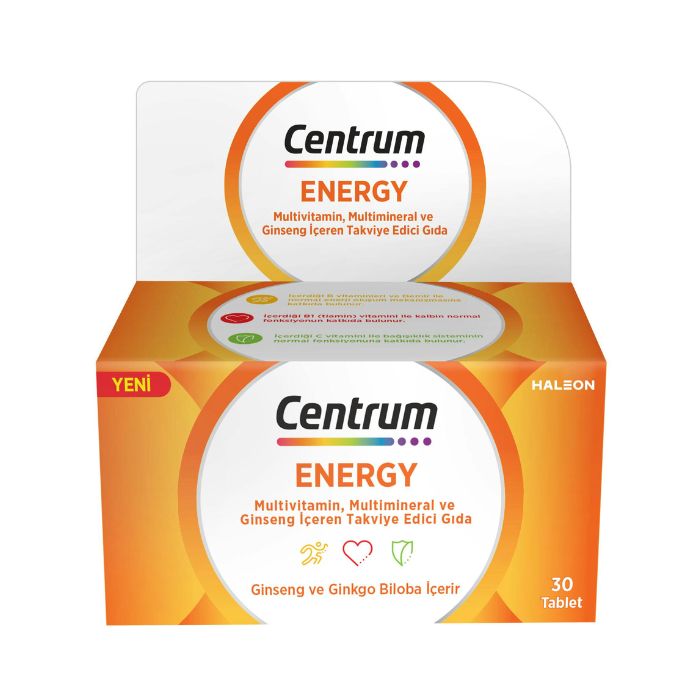how to choose the right multivitamin for your age and needs
How to Choose the Right Multivitamin for Your Age and Needs?
Sep 14, 2023, 11:39:20 AM

In today's fast-paced world, maintaining optimal health is crucial, and one essential aspect of achieving it is through proper nutrition. While a well-balanced diet is the foundation of good health, it can be challenging to ensure we're getting all the necessary vitamins and minerals solely from our food. This is where multivitamins come into play, providing a convenient and reliable way to bridge nutritional gaps and support overall well-being.
However, with a plethora of multivitamin options available on the market, it's essential to choose the right one that caters to your specific age and individual needs. Whether you're a young adult, middle-aged, or a senior, understanding the factors that influence your nutritional requirements can greatly assist you in making an informed decision.
In this comprehensive guide, we will explore the crucial aspects to consider when selecting a multivitamin tailored to your age and needs. We'll delve into the unique nutrient needs of different age groups, discuss the role of vitamins and minerals in maintaining overall health, and provide practical tips to help you navigate the multivitamin aisle with confidence.
Remember, choosing the right multivitamin is not a one-size-fits-all approach. It requires carefully evaluating your circumstances, including age, lifestyle, dietary habits, and specific health concerns. Armed with the knowledge and guidance offered in this guide, you'll be well-equipped to make an informed decision and find the multivitamin that optimally supports your health and well-being.
So, let's embark on this journey of discovering how to choose the right multivitamin for your age and needs, empowering you to take proactive steps toward achieving a vibrant and healthy life.
Understanding Nutritional Needs: A Key to Optimal Health

Proper nutrition plays a fundamental role in maintaining overall health and well-being. Our bodies require a wide range of vitamins, minerals, and nutrients to function optimally, support growth and development, and prevent illness. Understanding our nutritional needs is vital in ensuring we provide our bodies with the right fuel it needs to thrive.
Nutritional needs can vary based on several factors, including age, gender, activity level, health conditions, and life stages such as pregnancy or breastfeeding. Each of these factors influences the types and amounts of nutrients our bodies require to maintain optimal functioning.
Essential nutrients, such as vitamins and minerals, serve various functions in the body. For example, vitamins like vitamin C and vitamin A support immune function, while minerals like calcium and magnesium contribute to bone health. Other nutrients, such as carbohydrates, proteins, and fats, provide energy and help with growth, repair, and cellular functions.
Understanding the specific nutrient requirements for different age groups is particularly crucial. Infants and children have unique nutritional needs for growth and development, requiring adequate amounts of protein, vitamins, and minerals. Adolescents have increased energy and nutrient requirements due to growth spurts and hormonal changes. Adults have different needs depending on their activity level, gender, and overall health. Seniors may require specific nutrients to support bone health, cognitive function, and immune system resilience.
Furthermore, considering individual health conditions is essential when determining nutritional needs. Certain health conditions may require increased or decreased intake of specific nutrients. For instance, individuals with iron-deficiency anemia may need more iron-rich foods or supplements, while individuals with kidney disease may need to monitor their intake of phosphorus and potassium.
To better understand your nutritional needs, consulting with a healthcare professional, such as a registered dietitian or doctor, can provide valuable guidance. They can assess your individual circumstances, perform nutritional evaluations, and offer personalized recommendations to meet your unique needs.
Essential Vitamins and Minerals: The Building Blocks of Health
Vitamins and minerals are essential nutrients that our bodies need in small quantities but play critical roles in maintaining optimal health. These micronutrients are involved in numerous bodily processes, supporting everything from immune function and energy production to bone health and cognitive function. Understanding the importance of essential vitamins and minerals can help us make informed choices to meet our nutritional needs.
Here are some key vitamins and minerals and their roles in supporting our overall health:
1- Vitamin A
Known for its role in vision, vitamin A also supports immune function, cell growth, and reproduction. It is found in orange and yellow fruits and vegetables, leafy greens, and animal products like liver and eggs.
2- B Vitamins:
This group of vitamins, including B1 (thiamine), B2 (riboflavin), B3 (niacin), B6, B12, and folate, are involved in energy metabolism, nerve function, and red blood cell production. Whole grains, legumes, leafy greens, meat, and dairy products are good sources of B vitamins.
3- Vitamin C:
An antioxidant that supports immune function and collagen production, vitamin C is found in citrus fruits, berries, peppers, and leafy greens.
4- Vitamin D:
Known as the sunshine vitamin, vitamin D helps with calcium absorption and bone health. It can be obtained from sunlight exposure, fortified foods like milk and cereals, and fatty fish.
5- Vitamin E:
An antioxidant that protects cells from damage, vitamin E is found in nuts, seeds, vegetable oils, and leafy greens.
6- Vitamin K:
Essential for blood clotting and bone health, vitamin K is present in leafy greens, broccoli, and vegetable oils.
7- Calcium:
Vital for strong bones and teeth, calcium is also involved in muscle function and nerve transmission. Dairy products, leafy greens, and fortified foods are good sources of calcium.
8- Iron:
Required for the production of red blood cells and oxygen transport, iron is found in lean meats, beans, lentils, and fortified cereals.
9- Magnesium:
Important for muscle and nerve function, energy production, and bone health, magnesium can be obtained from nuts, seeds, whole grains, and leafy greens.
10- Zinc:
Essential for immune function, wound healing, and DNA synthesis, zinc is present in meat, shellfish, legumes, and seeds.
Different Types of Multivitamins: Finding the Right Fit for Your Needs

Multivitamins come in various forms, formulations, and compositions to cater to different nutritional needs and preferences. Understanding the different types of multivitamins can help you choose the one that aligns best with your specific requirements. Here are some common types of multivitamins available:
1- General Multivitamins
These are the most common type of multivitamins and provide a broad spectrum of essential vitamins and minerals. They are designed to support overall health and fill potential nutrient gaps in a balanced manner.
2- Gender-Specific Multivitamins
These multivitamins are formulated to address the specific nutritional needs of men and women. For example, men's multivitamins may contain higher levels of certain nutrients like zinc and vitamin B6, while women's multivitamins may include iron and folic acid to support reproductive health.
3- Age-Specific Multivitamins:
As nutritional needs vary with age, there are multivitamins formulated specifically for different life stages. There are multivitamins for children, teenagers, adults, and seniors. These products take into account the changing nutrient requirements associated with different age groups.
4- Performance Multivitamins:
Designed for athletes, fitness enthusiasts, and individuals with active lifestyles, performance multivitamins often contain additional ingredients like amino acids, antioxidants, or herbal extracts to support energy production, muscle recovery, and overall athletic performance.
5- Prenatal Multivitamins:
These multivitamins are specifically formulated for pregnant women or those planning to conceive. They contain higher amounts of folic acid, iron, and other nutrients crucial for fetal development and maternal health.
6- Vegetarian or Vegan Multivitamins:
Catering to individuals following plant-based diets, these multivitamins are free from animal-derived ingredients and often provide adequate amounts of nutrients like vitamin B12, iron, and omega-3 fatty acids, which can be challenging to obtain from a vegetarian or vegan diet alone.
7- Whole Food-Based Multivitamins:
These multivitamins are made from concentrated whole foods and contain nutrients in their natural forms, as opposed to synthetic forms found in traditional multivitamins. They aim to provide a more natural and bioavailable source of vitamins and minerals.
When choosing a multivitamin, it's important to consider factors such as your age, gender, specific health concerns or conditions, dietary preferences, and lifestyle. It's also advisable to consult with a healthcare professional or a registered dietitian who can assess your individual needs and provide guidance on selecting the most suitable multivitamin for you.
Safety and Side Effects of Multivitamins: Navigating the Path to Wellness
Multivitamins are generally considered safe when taken as directed, providing essential nutrients to support overall health. However, it's vital to be aware of potential safety considerations and side effects associated with multivitamin use. Understanding these factors can help you make informed decisions and ensure your well-being.
1- Adhering to Recommended Dosages:
It's crucial to follow the recommended dosage guidelines provided on the multivitamin packaging or as advised by your healthcare professional. Taking excessive amounts of certain vitamins and minerals can lead to toxicity or adverse effects.
2- Potential Interactions:
Multivitamins can interact with certain medications, herbs, or other supplements, affecting their efficacy or causing adverse reactions. If you take any prescription medications or have existing health conditions, it's important to consult with a healthcare professional to ensure there are no potential interactions.
3- Allergic Reactions:
Some individuals may experience allergic reactions to certain ingredients found in multivitamins, such as specific vitamins, minerals, or additives. If you have known allergies or sensitivities, carefully read the ingredient list and consult with a healthcare professional if necessary.
4- Digestive Issues:
Multivitamins can sometimes cause digestive discomfort, including nausea, bloating, or diarrhea. These symptoms are generally mild and temporary. If you experience persistent or severe digestive issues, it's advisable to consult with a healthcare professional.
5- Nutrient Overload:
Taking multiple supplements that contain overlapping nutrients or combining high-dose individual nutrient supplements with a multivitamin can lead to an excessive intake of certain vitamins or minerals. This can potentially result in adverse effects or imbalances. It's important to consider your total nutrient intake from all sources to avoid nutrient overload.
6- Personalized Needs:
Multivitamins are formulated to meet the needs of a wide range of individuals. However, individual nutrient requirements can vary depending on factors such as age, gender, health conditions, and lifestyle. Consulting with a healthcare professional or a registered dietitian can help assess your specific needs and guide you toward the most appropriate multivitamin.
7- Quality and Safety:
When purchasing multivitamins, choose products from reputable manufacturers or brands that follow good manufacturing practices (GMP) and have undergone third-party testing for quality and safety.
Lifestyle Factors: Enhancing the Effectiveness of Multivitamins

In addition to taking multivitamins, incorporating healthy lifestyle factors can significantly enhance their effectiveness and contribute to overall well-being. While multivitamins provide essential nutrients, they are not a magic solution on their own. By focusing on key lifestyle factors, you can optimize the benefits of multivitamins and promote a healthier and more vibrant life. Here are some important lifestyle factors to consider:
1- Balanced Diet:
Multivitamins should complement a well-balanced diet rather than replace it. Aim to consume a variety of nutrient-dense foods, including fruits, vegetables, whole grains, lean proteins, and healthy fats. By nourishing your body with whole foods, you provide a wide array of vitamins, minerals, and other essential nutrients that work synergistically with multivitamins.
2- Physical Activity:
Regular exercise is essential for overall health. Engaging in physical activity not only helps maintain a healthy weight but also promotes cardiovascular health, improves mood, boosts energy levels, and enhances overall well-being. Combine your multivitamin use with a consistent exercise routine tailored to your abilities and preferences.
3- Hydration:
Staying properly hydrated is crucial for optimal bodily functions. Water is essential for digestion, nutrient absorption, temperature regulation, and overall cellular health. Make sure to drink an adequate amount of water throughout the day, aiming for about eight glasses or more, depending on your individual needs.
4- Adequate Sleep:
Quality sleep is vital for overall health and well-being. During sleep, the body repairs and regenerates cells balances hormones, and supports immune function. Strive for a consistent sleep routine, aiming for 7-9 hours of quality sleep each night.
5- Stress Management:
Chronic stress can have a detrimental impact on overall health. Find healthy ways to manage stress, such as practicing relaxation techniques, engaging in hobbies, spending time in nature, or seeking support from loved ones. Adequate stress management can help optimize the benefits of multivitamins and promote overall well-being.
6- Avoidance of Harmful Substances:
Avoid or minimize the consumption of substances that can negatively impact health, such as tobacco, excessive alcohol, and illicit drugs. These substances can interfere with nutrient absorption, deplete essential vitamins and minerals, and lead to various health issues.
7- Regular Check-ups:
Periodic visits to healthcare professionals are essential for monitoring your overall health and identifying any specific nutrient deficiencies or health concerns. Regular check-ups allow for personalized guidance on multivitamin use and any necessary adjustments to your supplement regimen.
Conclusion
As we navigate the path to wellness, multivitamins and lifestyle factors intertwine like branches of a thriving tree, each supporting the other in our quest for optimal health. Like a symphony of nutrients, the multivitamin harmonizes with a balanced diet, physical activity, hydration, restful slumber, stress management, and avoidance of harmful substances. Together, they compose a melody that resonates throughout our bodies, amplifying the benefits and amplifying our vibrancy.
With each mindful step we take, we cultivate a garden of well-being, where the flowers of nourishment bloom and the fruits of vitality ripen. Our bodies, the canvas of our existence, become a masterpiece painted with the hues of nutrients and the strokes of vibrant life. The symphony of lifestyle factors and multivitamins dances in perfect harmony, embracing us with the sweet embrace of wellness.
In this creative journey, let us remember that multivitamins are not a solitary magic potion, but a vital tool that, when coupled with mindful choices, blossoms into a garden of resilience. So, let us embrace the symphony of nutrients and harmonize our lives with the rhythm of wellness, for it is in this union that we find the true essence of our vibrant existence.
LATEST BLOG POSTS
RECOMMENDED PRODUCTS
Centrum Silver Adult 50+ Multivitamin, Heart, Bone, Eye & Whole-Body Health Support, 100 Tablets
(182)
IN 30 mins
AED 129.00
175
Centrum Adult Multivitamin, Complete Daily Vitamins & Minerals for Energy, Immunity & Wellness, 100 Tablets
(250)
IN 30 mins
AED 119.00
145.01
Vital Healthcare Woman 50+ Multivitamin - Daily Nutrients for Heart, Vision, Energy & Immune Support - 30 Tablets
(101)
IN 30 mins
AED 38.82
78.75
Sunshine Nutrition Supreme VM Phyto Multivitamin & Minerals for Men & Women – Immune, Energy & Digestive Support – 100 Tablets
(31)
IN 30 mins
AED 198.45
414.75











